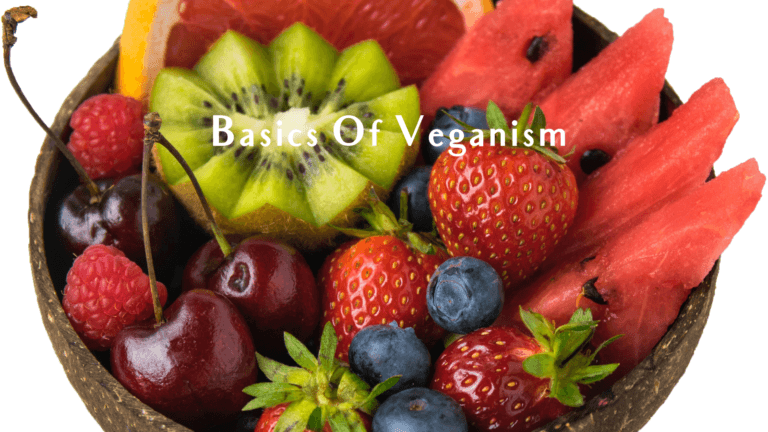Historical Significance Of Veganism
Historical Significance Of Veganism
Veganism, a philosophy and lifestyle centred around abstaining from animal products, has evolved into a significant cultural and social movement over the years.
Its historical significance is transforming from a niche concept to a global phenomenon that has profoundly influenced ethics, health, and environmental consciousness.
Understanding the historical development of veganism illuminates its roots and sheds light on its impact on society, from its early origins to its present-day relevance.
Veganism is not merely a dietary choice; it is a tapestry of ideologies, movements, and milestones that have shaped our understanding of ethics, reimagined our relationship with the natural world, and challenged the status quo.
As we unravel the historical significance of veganism, we embark on a journey that illuminates the power of compassion, resilience, and the timeless pursuit of a more harmonious existence.
This article explores the historical significance of veganism, tracing its evolution and highlighting key milestones. By unravelling the historical journey of veganism, we gain a deeper appreciation for its far-reaching influence and transformative power in shaping our world.

Why Veganism Is Essential For Human Well-Being
Veganism is important for human beings due to many reasons that encompass ethical, environmental, and health considerations.
Ethically, veganism recognizes animals' inherent value and rights, promoting compassion and non-violence towards all living beings.
By choosing a vegan lifestyle, individuals refrain from supporting industries that exploit and harm animals, aligning their actions with their values of empathy and justice.
From an environmental perspective, veganism is crucial in mitigating the harmful effects of animal agriculture on the planet.
Livestock production significantly contributes to deforestation, greenhouse gas emissions, water pollution, and biodiversity loss.
By adopting a plant-based diet, individuals reduce their carbon footprint, conserve water resources, and help preserve fragile ecosystems, contributing to a more sustainable and resilient environment for future generations.
Additionally, there are many health advantages to becoming a vegan. Whole grains, legumes, fruits, vegetables, nuts, and seeds are the mainstays of a well-designed vegan diet, which can supply all the nutrients you need while lowering your risk of developing chronic diseases.
According to studies, being a vegan is associated with lower incidences of heart disease, high blood pressure, obesity, type 2 diabetes, and several malignancies.
A well-rounded vegan diet can also be high in fiber, antioxidants, and essential vitamins and minerals, which can help you live a longer life.
In summary, veganism is vital for human beings as it aligns with the principles of compassion, promotes environmental sustainability, and offers significant health advantages.
By embracing a vegan lifestyle, individuals contribute to a more ethical and just world, protect the environment, and enhance their well-being. It is a powerful choice that empowers individuals to make a positive impact on themselves, animals, and the planet.

Benefits Of Veganism
Veganism offers many benefits that encompass ethical, environmental, and health aspects. From a moral perspective, veganism promotes compassion and respect for all living beings.
By choosing a vegan lifestyle, individuals abstain from supporting industries that exploit and harm animals for food, clothing, experimentation, and entertainment.
This alignment with ethical values fosters a sense of empathy and justice, as vegans actively work towards reducing animal suffering and promoting a more compassionate world.
Regarding the environment, veganism significantly mitigates the detrimental effects of animal agriculture on the planet.
Livestock production contributes to deforestation, greenhouse gas emissions, water pollution, and habitat destruction. By adopting a plant-based diet, individuals reduce their carbon footprint, conserve water resources, protect biodiversity, and alleviate pressure on land and ecosystems.
Veganism contributes to a more sustainable and resilient environment, helping to combat climate change and preserve natural resources for future generations.
Furthermore, veganism offers numerous health benefits. Well-planned vegan diets, rich in fruits, vegetables, whole grains, legumes, nuts, and seeds, can provide all the necessary nutrients for optimal health.
Vegan diets tend to be lower in saturated fats and cholesterol while higher in dietary fiber, antioxidants, and essential vitamins and minerals.
Studies have shown that veganism is associated with a lower risk of heart disease, high blood pressure, obesity, type 2 diabetes, and certain cancers. It can also support weight management, improve digestion, and enhance overall well-being.
In addition, veganism encourages individuals to explore a diverse range of plant-based foods, leading to greater culinary creativity and the discovery of new flavours and textures.
This dietary shift promotes a more varied and nutrient-rich intake, supporting a balanced and wholesome diet.
In addition to the ethical, environmental, and health benefits, veganism offers several other advantages. One such benefit is the potential cost savings associated with a plant-based diet.
Plant foods, such as grains, legumes, fruits, and vegetables, are more affordable than animal products, making veganism an accessible option for individuals on various budgets.
Additionally, veganism encourages food sustainability by reducing reliance on resource-intensive animal agriculture, which needs a lot of land, water, and feed.
Veganism helps to create a more effective and fair food system that can better feed the expanding world population by moving toward plant-based substitutes.
Engaging with like-minded people and taking part in regional vegan events, organizations, and online communities are additional ways that embracing veganism can promote community and connection.
These ties foster a sense of belonging, support, and knowledge exchange, which has a beneficial societal impact. Veganism emphasizes sustainability, accessibility, and social harmony in addition to many other advantages beyond individual health.
Overall, the benefits of veganism extend beyond personal health to encompass ethical considerations and environmental sustainability.
By embracing a vegan lifestyle, individuals contribute to a more compassionate world, reduce their ecological footprint, and enhance their own well-being. It is a powerful choice allowing individuals to impact themselves, animals, and the planet positively.
The Historical Significance Of Veganism
As a philosophy and lifestyle, veganism has made a remarkable journey throughout history, evolving from a relatively obscure concept to a widespread movement that has influenced ethics, health, and environmental consciousness.
Understanding the historical significance of veganism sheds light on its roots and reveals its profound impact on society.
This article explores the historical development of veganism, tracing its origins, key influences, and milestones while examining its relevance in the present day.

1. Ancient And Cultural Roots
Abstaining from animal products can trace back to ancient civilizations and religious practices.
Philosophies such as Jainism and Buddhism promoted non-violence and compassion towards all living beings, leading to vegetarian or vegan lifestyles in certain cultures.
These early roots laid the foundation for ethical considerations related to the treatment of animals and the impact of food choices on well-being.

2. The Birth Of Veganism
In the mid-20th century, veganism, as we know it today, emerged as a distinct movement. In 1944, Donald Watson and a group of like-minded individuals formed the Vegan Society, coining the term “vegan” to describe those who abstained from all animal products.
This marked the beginning of a movement that aimed to challenge the prevailing attitudes toward animal exploitation and promote a more compassionate lifestyle.

3. Ethical Awakening
The 1970s and 1980s witnessed a significant shift in public consciousness regarding animal rights and cruelty.
Influential works such as Peter Singer's “Animal Liberation” brought ethical considerations surrounding animal exploitation to the forefront.
These ideas resonated with many individuals who began questioning the morality of using animals for food, clothing, experimentation, and entertainment.

4. Environmental Awareness
Veganism's historical significance stems from its connection to environmentalism. In the 1990s, as awareness of climate change and environmental degradation increased, veganism gained attention for its potential to mitigate the environmental impact of animal agriculture.
Scientific reports highlighting the extensive resource consumption, deforestation, and greenhouse gas emissions associated with livestock production propelled veganism as a solution for sustainable and eco-friendly living.

5. Health And Nutritional Discoveries
Scientific research on plant-based diets and their impact on health has contributed to the historical significance of veganism.
Studies have shown that well-planned vegan diets can provide all the necessary nutrients while offering health benefits such as reduced risks of heart disease, obesity, and certain cancers.
This growing body of evidence has led to a greater acceptance of veganism as a viable and nutritious dietary choice.
6. Mainstream Recognition
In recent years, veganism has gained mainstream recognition, with an increasing number of individuals adopting plant-based lifestyles.
The availability of vegan alternatives, from plant-based meats to dairy-free products, has expanded, reflecting the growing demand for ethical and sustainable options.
Major food corporations, restaurants, and supermarkets have responded to this demand, making vegan choices more accessible and appealing.

7. Influence On Food Culture And Industry
The rise of veganism has sparked a revolution in food culture and industry. Innovative chefs, entrepreneurs, and food companies have embraced plant-based cooking, developing delicious and creative vegan alternatives.
The culinary world has witnessed a proliferation of vegan restaurants, food festivals, and cookbooks, contributing to the diversification and acceptance of vegan cuisine.
8. Activism And Social Movements
Veganism has become intertwined with various social justice movements. Animal rights activists, environmentalists, and advocates for social equality have recognized the interconnectedness of these issues and the importance of promoting a compassionate and sustainable lifestyle.
Veganism has provided a platform for individuals to actively engage in activism, raising awareness, and advocating for change.
9. Veganism And Counterculture Movements
In the 1960s and 1970s, veganism found resonance within counterculture movements that challenged established norms. It became associated with ideas of anti-establishment, alternative lifestyles, and rejecting mainstream consumerism.
Veganism aligned with the broader desire for personal freedom, social justice, and environmental consciousness that characterized these movements.

10. Pioneers And Influencers
Throughout history, influential figures have significantly promoted veganism and spread its message. People like Frances Moore Lappé, John Robbins, and Gary Francione have authored books, delivered speeches, and advocated veganism, amplifying its reach and impact.
11. Veganism And Technology
Vegetarianism has a long history, and technology continually evolves. The rise of social media platforms, blogs, and online communities has facilitated the sharing of information, recipes, and support among vegans globally.
Online platforms have provided a space for individuals to connect, organize, and promote the vegan lifestyle, significantly contributing to its widespread adoption.
12. Legal And Policy Changes
Veganism has influenced legal and policy changes regarding animal welfare and dietary choices. As veganism gained traction, laws and regulations have been enacted to address concerns such as factory farming practices, animal testing, and labelling requirements.
Some countries and institutions have implemented vegan-friendly policies, recognizing the ethical and environmental implications of animal product consumption.
13. Cultural Integration And Global Expansion
Veganism has transcended cultural boundaries and gained traction in various regions worldwide. While it initially emerged in Western countries, veganism has expanded globally, finding resonance in diverse cultures and societies.
This cultural integration has led to the fusion of traditional cuisines with plant-based alternatives, creating a rich tapestry of vegan culinary traditions worldwide.

14. Veganism As A Social Justice Movement
Veganism's historical significance lies in its connection to social justice movements beyond animal rights. Intersectional veganism recognizes the links between animal rights, human rights, and environmental justice.
It acknowledges the impact of animal agriculture on marginalized communities, the exploitation of workers, and the connection between animal liberation and broader social justice movements.

15. Future Implications
The historical significance of veganism foreshadows its future implications. As the world faces mounting challenges such as climate change, resource depletion, and food insecurity, veganism offers a sustainable and compassionate solution.
The continued growth of veganism will likely drive further innovation, transform food systems, and influence policy changes with far-reaching consequences.

16. Veganism And Women's Rights
Throughout history, women have advocated for veganism and animal rights. Female activists such as Frances Power Cobbe, Anna Kingsford, and Carol J. Adams have contributed significantly to the historical development of veganism.
Their work highlights the intersectionality of veganism, recognizing the exploitation of animals and women within patriarchal systems.

17. Veganism In Religion And Spirituality
The relationship between veganism and spiritual and religious beliefs demonstrates the historical significance of veganism.
Many religious and spiritual traditions embrace vegetarian or vegan principles, emphasizing compassion, non-violence, and reverence for all life.
From Jainism and Buddhism to certain sects of Hinduism and various spiritual practices, veganism finds roots in ancient wisdom and remains a relevant aspect of spiritual pursuits.
18. Veganism As A Form Of Protest
Veganism has historically been a form of resistance to tyranny. From the animal rights movements of the 20th century to contemporary protests against factory farming and animal testing, veganism has served as a powerful tool for individuals to express their dissent and actively challenge the status quo.

19. Veganism's Influence On Fashion And Cosmetics
The historical significance of veganism extends beyond diet to encompass fashion and cosmetics. With growing awareness of animal cruelty in the fashion and beauty industries, veganism has influenced the demand for cruelty-free and vegan alternatives. This has led to a shift in the availability and accessibility of vegan fashion, including clothing, shoes, and cosmetics.
20. Veganism And Sustainable Development
Veganism has become vital to sustainable development as the world grapples with climate change and environmental degradation.
The historical significance of veganism lies in its potential to contribute to ecological balance, reduce greenhouse gas emissions, conserve water resources, and promote biodiversity. By embracing veganism, societies can achieve a more sustainable and resilient future.
21. Veganism And Animal Sanctuaries
Animal sanctuaries and rescue groups are on the rise due to veganism's historical influence. These sanctuaries provide refuge for animals rescued from various forms of exploitation, serving as living reminders of the ethical implications of animal agriculture.
They serve as educational centers, fostering compassion and promoting a deeper understanding of the value of animal life.

22. Veganism And Global Health Crises
The historical significance of veganism gains particular relevance in light of global health crises, such as the COVID-19 pandemic.
The zoonotic origin of many diseases highlights the risks associated with exploiting animals for food. Veganism offers a proactive approach to reduce the likelihood of future pandemics and improve public health by shifting towards plant-based diets and sustainable food systems.
23. Veganism's Influence On Language And Terminology
Veganism has influenced language and terminology, contributing to the development of new terms and concepts. Words like “vegan,” “plant-based,” and “cruelty-free” have become widely recognized and integrated into everyday discourse.
This linguistic influence reflects veganism's cultural and historical significance as it continues to shape our understanding and communication around animal ethics and dietary choices.
The historical significance of veganism encompasses its ethical, health, and environmental aspects and cultural and social impact.
It has evolved from its early roots to a dynamic movement that challenges societal norms, transforms food cultures, and promotes a more compassionate and sustainable future.
By understanding its historical journey, we can appreciate the enduring influence of veganism and its potential to shape a more ethical and harmonious world.

Conclusion
Veganism's historical significance is a testament to the power of individual choices and collective movements in shaping our world.
From its ancient roots in philosophical and religious practices to its modern emergence as a global movement, veganism has challenged prevailing norms and sparked conversations about compassion, sustainability, and personal responsibility.
Throughout history, veganism has played a crucial role in advocating for the rights and welfare of animals, raising awareness about the environmental impact of animal agriculture, and promoting healthier lifestyles.
It has inspired individuals, organizations, and even entire nations to reevaluate their relationship with food, animals, and the planet.
The historical significance of veganism lies in its transformative impact on individuals and its potential to reshape cultural, societal, and systemic structures.
As we move forward, embracing the lessons of history, veganism offers hope and inspiration for a more compassionate, sustainable, and inclusive future.
I trust you enjoyed this article about the Historical Significance Of Veganism. Please stay tuned for more blog posts to come shortly. Take care!
JeannetteZ
>>> Please click here to read my Vegan Travel Guides To World Destinations <<<
>>> Want To Learn How To Create Delicious, Cruelty-Free, Healthy AND 100% Vegan Meals? Try These Awesome Vegan Cooking Courses With A Free 7-DAY MEMBERSHIP<<<
Your Opinion Is Important To Me
Do you have thoughts, ideas, or questions? I would love to hear from you. Please leave me your questions, experiences, and remarks about the Historical Significance Of Veganism article in the comments section below. You can also reach me by email at Jeannette@LivingTheVeganLifestyle.org.
Disclosure
This post may contain affiliate links. I earn from qualifying purchases as an Amazon Associate and other affiliate programs. Please read my full disclosure.
Here are links to some of my favourite articles:
Best Vegan Desserts Without Sugar
Best Vegan Grocery Shopping List






